K.C. Tewari
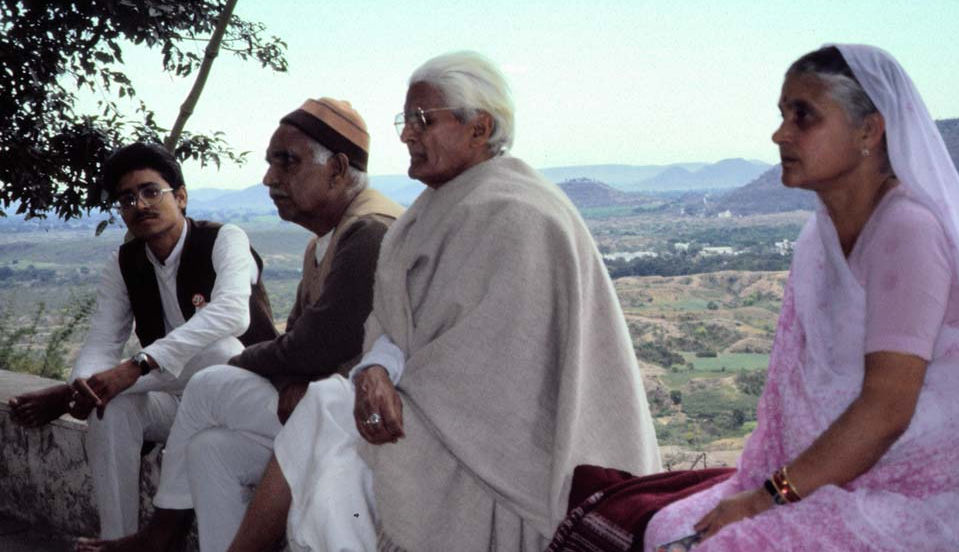 Mr K.C. Tewari, also known as Kishan (seated in the middle), was one of the closest devotees to Maharajji. This page contains a selection of quotes about K.C. from several books. The photos are from Mohan Baba's ImageEvent page.
Mr K.C. Tewari, also known as Kishan (seated in the middle), was one of the closest devotees to Maharajji. This page contains a selection of quotes about K.C. from several books. The photos are from Mohan Baba's ImageEvent page.
❤️ "When Kishan came into contact with Babaji in his youth, he had been suffering for a long time from trouble with his lungs. This stood in the way of his settling down to a traditional family life, getting married, and earning a living. Babaji took up his case in full earnest. He was cured from his illness, which had already become chronic and had defied all remedy. After that, his marriage was arranged."
(The Near and The Dear, p169)
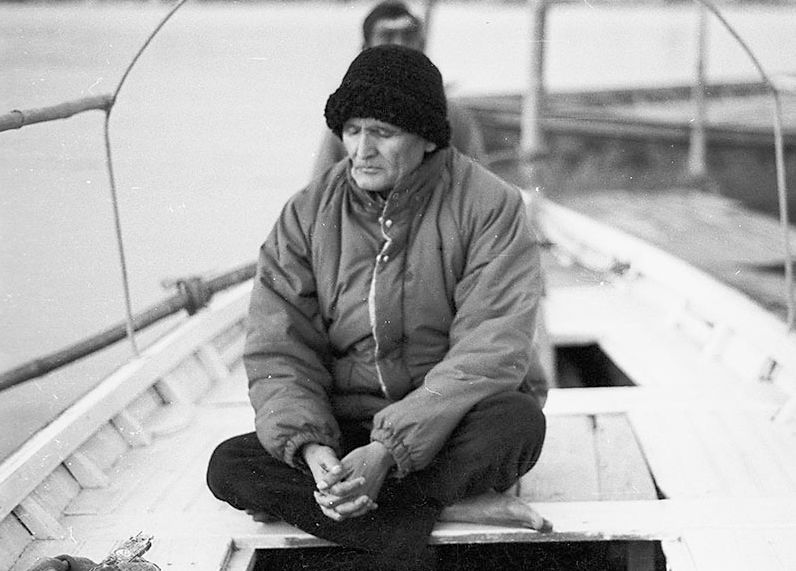 Kishan Tewari in meditation.
Kishan Tewari in meditation.
❤️ "One time when K.C. was in his early 30s and single, he and Maharaj-ji visited the house of a devotee in Haldwani who had recently died. The youngest daughter was taking care of the whole family, including her older sisters and their husbands. When Maharaj-ji and Tewari arrived, she served them with much love and respect. She was constantly going in and out of the living room, bringing them things to eat and drink. Maharaj-ji said to Tewari, “Look at her, how beautiful she is. How beautifully she serves.” Maharaj-ji kept on talking about her and her wonderful qualities. Finally he said to Tewari, “You should marry this girl.” Tewari retorted, “I will not. You know I have taken a vow not to marry.” Tewari’s parents had died when he was very young and he’d been raised by an aunt, who’d also died when he was young.He’d sworn to remain a bachelor and avoid family life. Maharaj-ji protested, “No, no. You should marry her. Isn’t she beautiful? See how she serves everyone. She is actually Joan of Arc.” Tewari fiercely refused. Maharaj-ji said, “We’re not leaving this house until you agree to marry her.” A battle began between the two of them.
Finally at the end of three days, Tewari told Maharaj-ji, “Okay, I’ll agree to marry her under one condition. If you agree to take responsibility for everything that comes from this marriage and put it in writing, then I’ll do it.” Maharaj-ji replied, “What?! I’ll never do that. What do you think I am?” Tewari said, “Great. Then I won’t get married.” Finally, Maharaj-ji agreed to Tewari’s terms. I’ve seen the marriage certificate, which reads, “I, Neem Karoli Baba, take full responsibility for all issue from this marriage,” and it’s signed in gold ink by Maharaj-ji.
After some time, the day of the marriage arrived. While Tewari was going in the traditional procession to meet the bride, word came that Maharaj-ji was sitting nearby. Tewari left the procession and went to see him. They sat together for a long time until someone asked Maharaj-ji, “What are you doing keeping this guy here? You are holding up the marriage.” Maharaj-ji sent Tewari away with words of encouragement, and the marriage was performed."
(Chants of a Lifetime, p216)
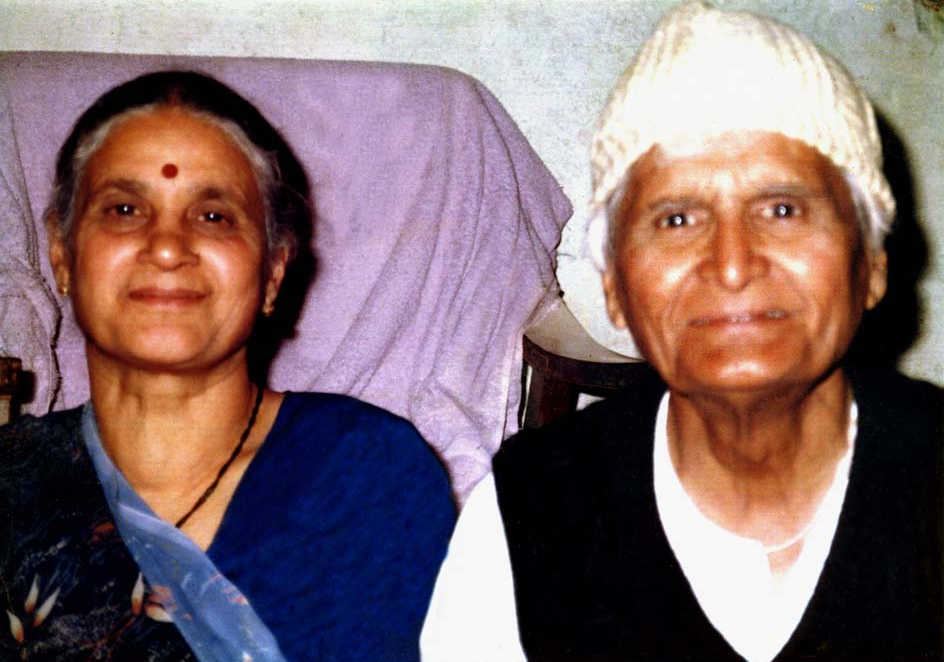 Mr & Mrs K.C. Tewari in 1987.
Mr & Mrs K.C. Tewari in 1987.
❤️ "Another time Tewari came from Nainital to Kainchi Temple and started hollering at Maharaj-ji. “Why did you bring me here? I was happy in Nainital and had no intention of coming here, but you dragged me!” Maharaj-ji yelled back, “I have nothing to do with it. I drag no one here, but you and I have been together for 83 lifetimes. It just has to happen!” This is the way they played."
(Chants of a Lifetime, p221)
❤️ "One day Maharaj-ji said to Mr. Tewari, “So, you’re a Brahmin, you’re supposed to know everything. Tell me, what did Krishna teach in the Gita?” Tewari knew it was a setup and there was no escape, but he gave the answer most people would give: “He taught nishkama karma, selfless service or ‘desireless action.’” Maharaj-ji yelled, “You miserable Brahmins, always misleading the people! Only God can do selfless service.”"
(Chants of a Lifetime, p178)
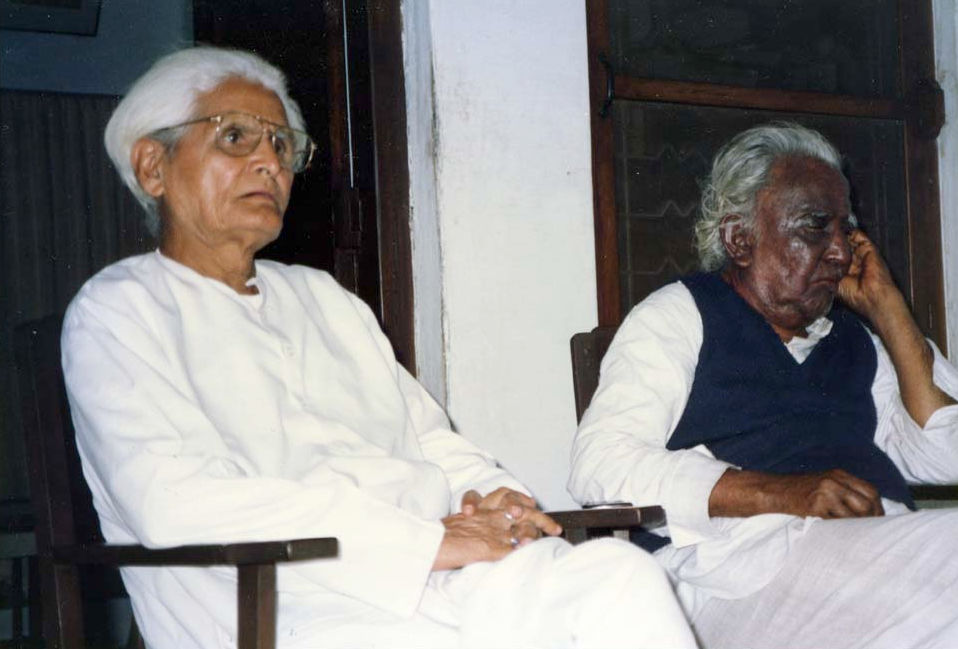 Kishan and Dada in 1995 at 4 Church Lane in Allahabad.
Kishan and Dada in 1995 at 4 Church Lane in Allahabad.
❤️ "One time Maharaj-ji and K.C. were in Lucknow. They went down to a little Hanuman temple by the river and Maharaj-ji told him, “Sit down and do your Shiva puja.” Tewari said, “I will not!” Maharaj-ji insisted, “No. Do your puja, do your puja!”“I don’t care what you say, I’m not going to do my puja.”
“Why not?”
K.C. said, “Because I know how you are. You know that onceI sit down to do the puja, I’ve taken a vow not to get up until it is finished, and that will be four hours. The minute I sit down and start, you’re going to run away, and I’m going to be here for four hours all by myself.” “No, no, no, I promise I won’t. I promise I won’t run away.” “Oh, really? Okay, hold your ears [this is the Indian equivalent of cross your heart, hope to die]!”
K.C. made Maharaj-ji hold his ears and promise not to runaway. Then he sat down and began his puja. He knew the whole thing by heart. Maharaj-ji sat like a stone in front of him and didn’t move for four hours. The second Tewari was finished, Maharaj-ji leapt up and told him, “You miserable guy! How could you keep me here like this? I have so much work to do!” And he ran off. "
(Chants of a Lifetime, p220)
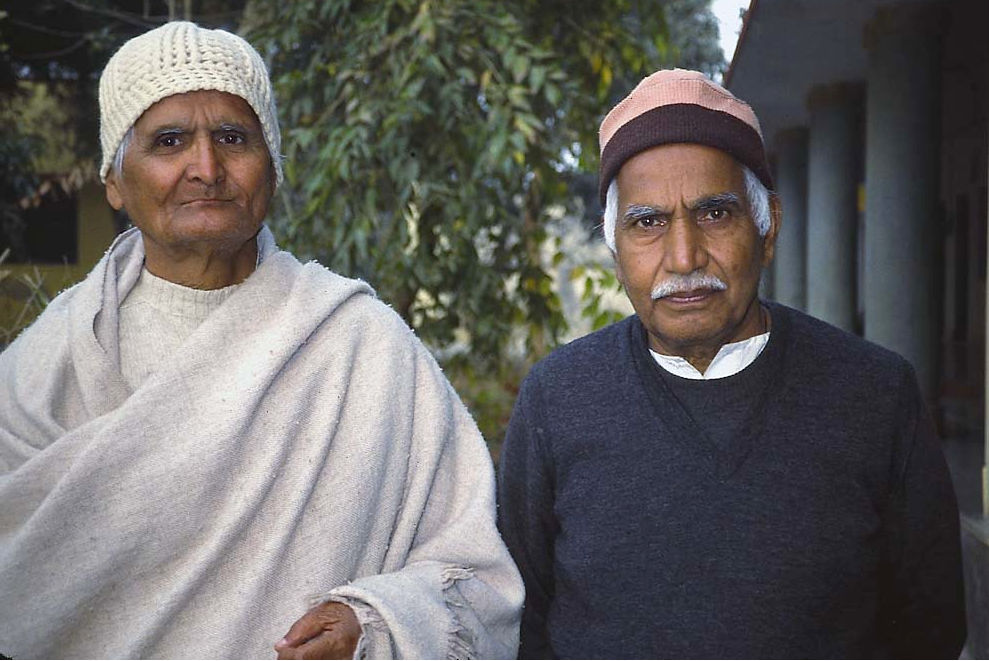 Kishan and Jivanda in 1987.
Kishan and Jivanda in 1987.
❤️ "Brahmachari Maharaj was a great saint, highly revered in the Kumoan Hills. When he and Maharajji met, Brahmachari Maharaj did dunda pranam. It was a hot day, and Brahmachari Maharaj sent Tewari to get water for making a lassi (a drink of churned yogurt, water & sugar). Brahmachari Maharaj drank water only from a distant spring, so Tewari was some time in getting the water. When he returned, Brahmachari Maharaj berated him: “You have no insight. You don’t understand. This is no ordinary saint. Maharajji could drink tap water. It doesn’t matter for him.”"
(Miracle of Love, p142)
❤️ "Once Maharajji and Mr. Tewari were talking on the parapet at Hanuman Garh. Maharajji looked up above him and closed his eyes for a moment and told Tewari that a certain old woman devotee from down in the plains had just died. Then he giggled and laughed and laughed. Tewari, who had known Maharajji for many years, was taken aback and said, “You butcher! How can you laugh at the death of a human being?” Maharajji looked at him in surprise and said, “Would you rather have me pretend I'm one of the puppets?”"
(Miracle of Love, p395)
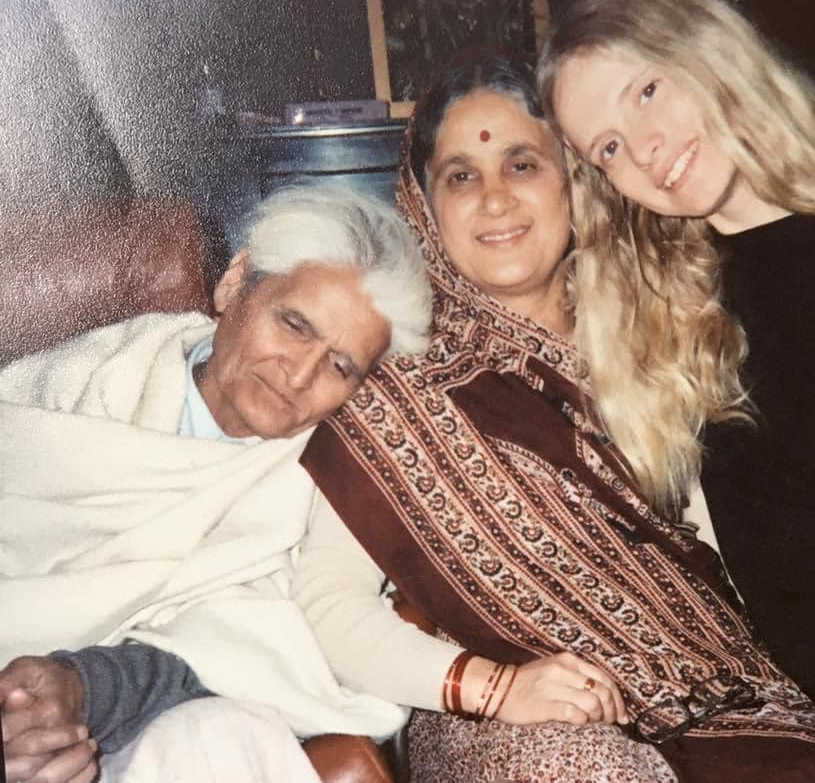 Mr & Mrs K.C Tiwari and Sarada Devi.
Mr & Mrs K.C Tiwari and Sarada Devi.
❤️ "Babaji was sitting in a corner of the temple grounds along with Kishan. When everyone had gone, he asked Kishan to fill up two empty tins with water from the tap and leave them on the path leading to the temple. He was asked to do the preparation in secret; he would be sent away for good if he talked about it to anybody. Kishan did as he was told. The next morning there was a flutter. Haridas was the first to notice that there were two tins lying outside on the road. Seeing that they were full of ghee, he was happy; now they could resume the preparation of puris. He rushed toward Babaji to tell him of the miracle, but when Babaji saw Haridas coming, he started shouting that everyone was negligent and careless, leaving things here and there, allowing them to go to waste. They had been crying for ghee, but no one cared to keep the tins in a safe place. Such were the persons who were doing bhandara of Hanumanji! We had also heard about this miracle of Babaji's from many others who were present there, but the most important role was played by Kishan, who served as the instrument and also as a witness of the miracle."
(The Near and The Dear, p166)
❤️ "Although Kishan would visit Allahabad with Babaji every year, his stays were short. He had his duties at college and his duties to his family.He considered himself a junior in rank among the devotees, to his advantage. While others were busy with their stories, Kishan would step into Babaji's room and sit with him. Babaji did not discourage him. Sometimes Babaji would get him to talk by asking him about certain events or incidents, then intervene with questions and comments. Whenever Babaji wanted the story to be relished by the people sitting there, not only useful, but palatable, he would add some sauce by contradicting certain things said by Kishan or rebuking him to be an old badmash (wicked one). The devotees came to know that these abuses were not seriously meant; they were to serve as sauce and pickles for the relish of all. The result of this was that many sought to be with Baba when Kishan was with him."
(The Near and The Dear, p167)
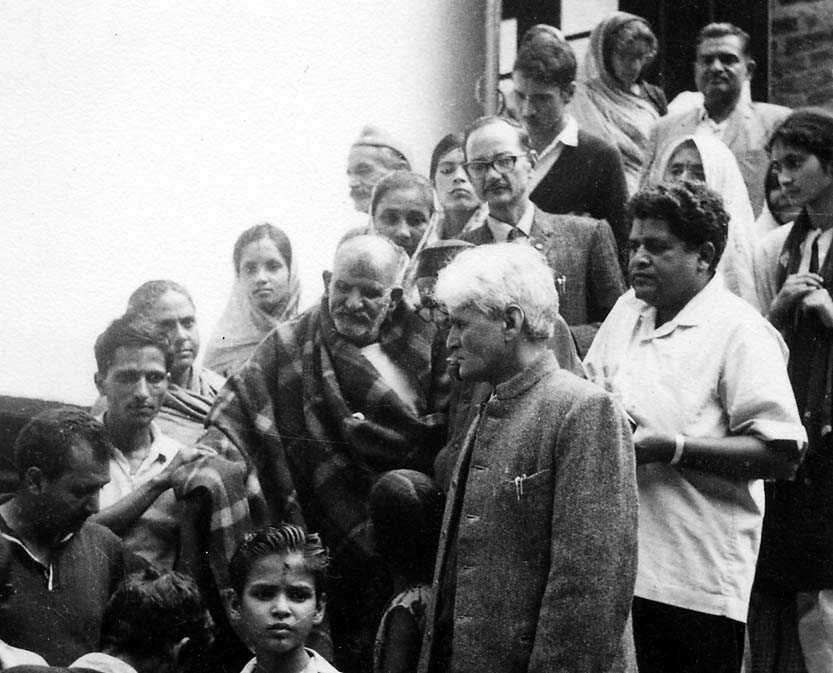 Maharajji and KC with other devotees.
Maharajji and KC with other devotees.
❤️ "Kishan's knowledge of scriptures was useful for everyone. If any reference was needed about religious matters, Babaji would ask Kishan to explain. Similarly, whenever any talk centered around sadhana and yogic practices, he would ask Kishan to demonstrate by entering into meditation. In Allahabad this display was used sparingly, but it became otherwise in Kainchi and Vrindavan with the coming of the western devotees. They were very keen to practice meditation and samadhi. If a doctor visitor happened to be there when Babaji put Kishan in samadhi, Babaji would ask him to examine Kishan and see if it was genuine or not. In spite of all efforts, no one could break the samadhi.Ultimately, Babaji would have to bring him out of it. These demonstrations of what the western devotees came to call the "yoga of meditation" would be full and perfect. Those who were interested to learn and practice it were directed to various centers where courses on meditation were conducted. Rather than by learned and lengthy discourse, Babaji's method of teaching was to provide actual demonstrations before their eyes, inspiring them to learn and practice."
(The Near and The Dear, p167)
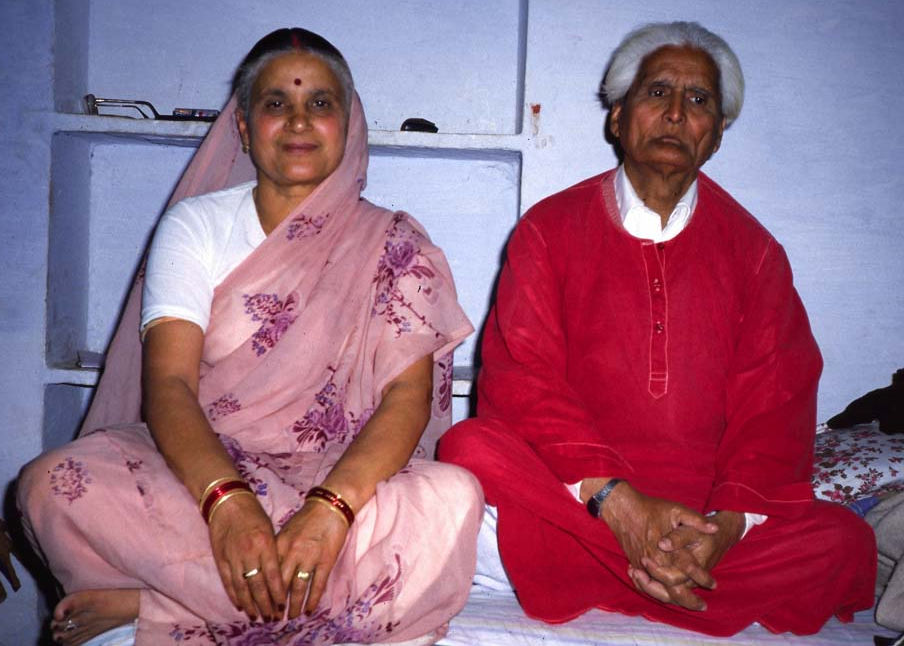 Mr and Mrs Tewari in red in 1987.
Mr and Mrs Tewari in red in 1987.
❤️ "The last day that Maharajji was in Kainchi, many buses had come, and there were throngs of people in the courtyard. It was a fun and festive atmosphere. He had a little show that he did with me and Krishna Tewari, who used to like me to sing Mere Guru Dev and then he would go into samadhi. In a film Draupadi shot that day, Krishna Tewari is in samadhi, Maharajji’s got his blanket over Tewari’s head, and he’s hitting him to wake up. We were all in a really great space."
(Love Everyone, Dropping the Blanket, ch16)
 Maharajji waking up K.C. Tewari.
Maharajji waking up K.C. Tewari.
❤️ "On Maharaj-ji’s last day at the Kainchi ashram before he left his body, he put Tewari into a very deep samadhi and told him to take care of the Westerners. Maharaj-ji said that he was leaving “central jail” (this world) and that all of the Westerners would bother K.C. from then on. It was a task Tewari had previously avoided. Once, some years before, when Maharaj-ji and K.C. had been alone together, Maharaj-ji reached into his dhoti, pulled outa huge wad of money, and threw it at Tewari. He said that K.C. should go to America and teach meditation. Tewari started to cry bitterly and asked Maharaj-ji, “Do you think I come here for money?” So Maharaj-ji took the money back. Then Tewari recovered his composure and started teasing Maharaj-ji: “Now I see what kind of baba you are, hoarding money like that! I’m going to tell everyone!” Maharaj-ji laughed and said, “What money? You think that you’re a clever person, but you don’t know that I’m the cleverest of all!” He reached into his dhoti again and pulled out a bunch of little pieces of paper. He explained, “I’m getting old and losing my memory, so I keep the names and addresses of the devotees on these scraps of paper. You’re a greedy man, so you saw money.” The money was gone."
(Chants of a Lifetime, p221)
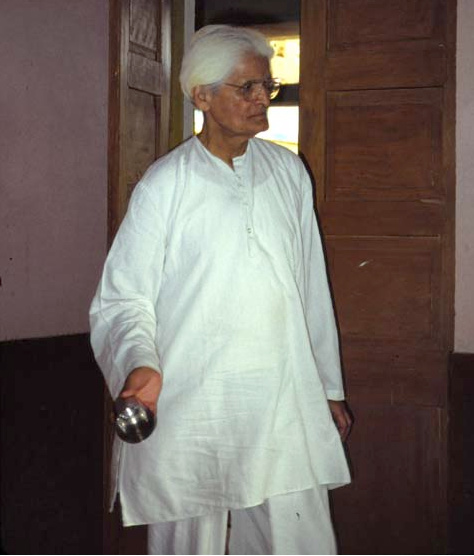 Kishan Tewari in white in 1987.
Kishan Tewari in white in 1987.
❤️ "Without the Tewaris, I probably wouldn’t be alive today."
(Chants of a Lifetime, p120)
❤️ "Tewari used to say that the judgmental mind—analyzing things from our own limited point of view—is like being in a boat going down the rapids toward a waterfall and looking at the bank and thinking that the bank is moving. We think we’re seeing everything clearly, but we’re headed for the waterfall. Tewari had a totally nonjudgmental way of seeing the world and of living in the world, and often showed me what it might look like if I wasn’t caught in the movie of Me."
(Chants of a Lifetime, p128)
❤️ "At his daughter’s house, he recovered completely and was feeling healthier than he had in many years. His eldest son, Sharad, phone call from home saying that his son, Nitin, had fallen from the roof of the house and was dead. Tewari said, “He’s not dead.” Sharad left immediately for Lucknow to find that, in fact, Nitin was not dead, but in a coma. He reported this to his father. Tewari picked up his prayer beads and said, “He [Maharaj-ji] listens to me when I do this,” and began to do his prayers. After three days, Nitin came out of the coma and miraculously began to recover. One day shortly after Nitin had stabilized, Tewari got up early in the morning as usual. He asked Ma what time it was. She said 3:30. He got out of bed and walked to the door of the bathroom. He stopped and stood absolutely still. Ma asked him what was wrong. He didn’t reply. He then fell stiffly, banging his head on the wall. He was taken to the hospital and was in a coma for three days, the same amount of time that Nitin had been unconscious, after which he opened his eyes. Minoo, who was sitting with him, asked him how he was. He said, “Perfectly all right,” and then he died. He had traded his life for his grandson’s."
(Chants of a Lifetime, p223)
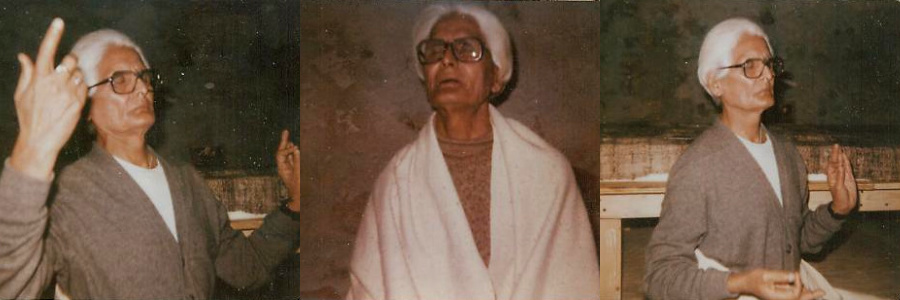 If you would like to submit any additional photos of K.C. Tewari, please contact our webmaster here.
If you would like to submit any additional photos of K.C. Tewari, please contact our webmaster here.
